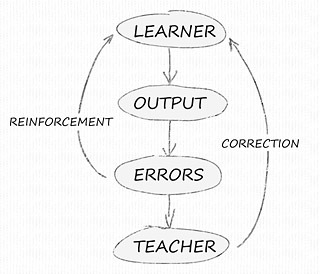Great savings for a bright future


All the skills you need in one place
1. "All the skills you need to learn and speak English — in one place."
2. "Learn and speak English with confidence — everything you need, all here."
3. "Your complete English learning solution — simple, fast, effective."
4. "Start speaking English today — with all the right skills in one place."
5. "One platform. All the skills. Speak English fluently."
6. "Everything you need to master English — in one easy place."
Importance of English language
2.Economic and Business Opportunities
Global Business Language: English is the dominant language in global business. Multinational companies often require proficiency in English for employment and promotion.
Trade and Commerce: Knowledge of English can facilitate trade and business negotiations across borders, leading to economic growth and collaboration.
3.Education and Research
Academic Language: Many of the world's top universities and academic journals use English. Proficiency in English allows access to high-quality education and cutting-edge research.
Study Abroad: English proficiency opens up opportunities to study in English-speaking countries, enhancing educational and professional prospects.
4.Access to Information and Technology
Internet and Media: A significant proportion of online content, including websites, social media, and digital media, is in English. Understanding English provides greater access to information and entertainment.
Scientific and Technical Communication: English is the primary language for scientific research, technology, and innovation. It is essential for staying updated with the latest advancements and developments.
5. Cultural Exchange
Literature and Arts: English is the language of a vast body of literature, film, music, and other forms of art. Knowledge of English allows one to appreciate and engage with these cultural products.
Travel and Tourism: English is widely spoken as a second language in many countries, making travel easier and more enriching.
1. Global Communication
Lingua Franca: English is the most widely used language for international communication.
Diplomacy and International Relations: English is often used as the working language in international organizations such as the United Nations, NATO, and the European Union.
6. Career Advancement
Job Opportunities: Proficiency in English can enhance job prospects and career advancement, particularly in multinational companies and global industries.
Professional Development: Many professional development resources, including courses, certifications, and conferences, are available in English.



Common Mistakes Beginners Should try to avoid:
1. Neglecting Pronunciation
Ignoring Pronunciation Practice: Focusing solely on vocabulary and grammar without practicing pronunciation can lead to misunderstandings. Use resources like pronunciation guides, language apps, and listen to native speakers to improve.
Not Learning Phonetics: English has sounds that may not exist in your native language. Understanding phonetic symbols and practicing these sounds can be helpful.
2. Overusing Direct Translations
Translating Word-for-Word: Directly translating phrases from your native language to English often leads to awkward or incorrect sentences. Instead, try to think in English and learn common phrases and expressions.
Ignoring Context: Words and phrases can have different meanings based on context. Pay attention to how words are used in different situations.
4.Limited Vocabulary Practice
Learning in Isolation: Memorizing lists of words without understanding how to use them in context can be ineffective. Practice new vocabulary in sentences and conversations.
Not Using New Words: Try to use new words in your writing and speaking. Repetition and usage help in retaining vocabulary.
3. Focusing Only on Grammar
Perfectionism in Grammar: While grammar is important, focusing too much on it can hinder fluency. Practice speaking and writing even if you're not sure about every grammatical rule.
Avoiding Conversation: Don't wait until your grammar is perfect to start speaking. Practice speaking as early as possible to build confidence and fluency.
5.Limited Vocabulary Practice
Learning in Isolation: Memorizing lists of words without understanding how to use them in context can be ineffective. Practice new vocabulary in sentences and conversations.
Not Using New Words: Try to use new words in your writing and speaking. Repetition and usage help in retaining vocabulary.


Native Speaker VS Non-Native English Speaker
1. Language Acquisition
Native English Speakers:
Natural Acquisition: They learn English from birth, acquiring it as their first language through immersion in their home and community environments.
Intuitive Understanding: Native speakers often have an intuitive grasp of idiomatic expressions, slang, and cultural references.
Non-Native English Speakers:
Learned Acquisition: They learn English as a second (or additional) language, often through formal education or self-study.
Structured Learning: Non-native speakers may rely more on grammar rules and structured learning methods.
2. Pronunciation and Accent
Native English Speakers:
Natural Accent: They naturally develop the accent of their region or community.
Intonation Patterns: Native speakers use natural intonation, stress, and rhythm in their speech.
Non-Native English Speakers:
Accented Speech: They may retain an accent influenced by their native language.
Pronunciation Challenges: Certain sounds and intonation patterns might be difficult for non-native speakers to master.
3.Cultural Understanding
Native English Speakers:
Cultural Nuances: They have a deep understanding of cultural references, humor, and societal norms related to the English language.
Contextual Awareness: Native speakers easily grasp the context and subtext in communication.
Non-Native English Speakers:
Cultural Learning: They may need to actively learn cultural references and societal norms associated with English-speaking countries.
Context Sensitivity: Non-native speakers might need additional context to fully understand nuanced language use.





Here are concise steps to learn English from basic to advanced levels:
Basic Level
Intermediate Level
Advanced Level
Learn the Alphabet: Start with the English alphabet and basic phonics.
Basic Vocabulary: Focus on essential words and everyday phrases.
Simple Sentences: Practice forming simple sentences using basic grammar rules.
Listening Practice: Listen to simple English songs, children’s stories, and beginner-level podcasts.
Expand Vocabulary: Learn more words related to common topics like food, travel, and daily routines.
Grammar Rules: Study tenses, prepositions, conjunctions, and more complex sentence structures.
Reading Practice: Read short stories, articles, and easy-to-read books.
Listening Skills: Listen to podcasts, watch movies with subtitles, and follow English news.
Advanced Vocabulary: Learn specialized and academic vocabulary.
Complex Grammar: Master advanced grammar topics like conditional sentences, passive voice, and modal verbs.
Reading Practice: Read novels, academic articles, and technical materials.
Listening Skills: Engage with advanced podcasts, TED Talks, and English TV shows without subtitles.
Contact Us
For any inquiries or feedback related to learning English like natives, feel free to contact us.




